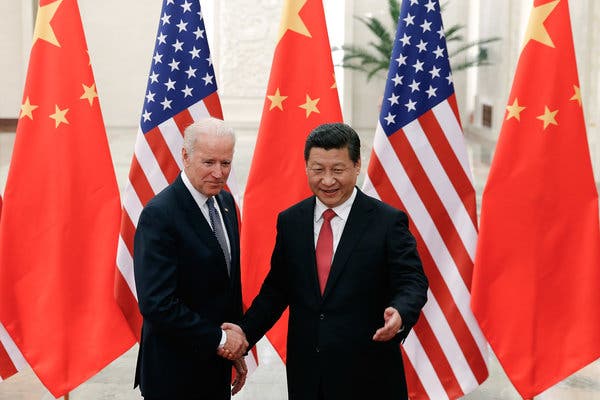The Biden administration has imposed new sanctions on China, targeting the country’s several companies for supporting Beijing’s military modernization efforts, as part of its response to a Chinese spy balloon that traversed U.S. airspace last week, The New York Times reported.
The Commerce Department added five Chinese companies and one research institute to its so-called entity list, which will prevent companies from selling them American parts and technologies without a special license. Officials said the six entities had supported Chinese military programs related to airships and balloons used for intelligence and reconnaissance, the publication reported.
Earlier this week, the US Commerce Department added five Chinese companies and one research institute connected to Beijing’s aerospace programs including airships and balloons to an export blacklist.
The Commerce Department said the six entities were supporting “China’s military modernization efforts, specifically the People’s Liberation Army’s (PLA) aerospace programs including airships and balloons.”
The Chinese government has tried to downplay the incident, arguing that the balloon was a civilian device for monitoring weather.
The entities that the United States targeted Friday were Beijing Nanjiang Aerospace Technology Company, Dongguan Lingkong Remote Sensing Technology Company, Eagles Men Aviation Science and Technology Group Company, Guangzhou Tian-Hai-Xiang Aviation Technology Company, Shanxi Eagles Men Aviation Science and Technology Group Company and China Electronics Technology Group Corporation 48th Research Institute, The New York Times reported.
The Commerce Department did not specify whether the companies and the institute had played a direct role in developing or operating the balloon that flew across the United States. But the Biden administration said earlier this week that it would consider taking action against any entities that had aided the balloon’s flight.
The balloon was shot down by a highly advanced US fighter jet last week. President Joe Biden congratulated US fighter pilots for taking down the balloon in the country’s airspace and above its territorial waters.
The Pentagon decried what it called China’s unacceptable violation of US airspace.
China has expressed regret blaming unfavourable winds for pushing what it calls a “civilian airship” into US airspace.
Beijing China insists the balloon was a “civilian airship used for research, mainly meteorological purposes,” and it unintentionally veered off into US airspace.
Notably, the US shot down the giant balloon, which China claimed to be a civilian airship used for research mainly meteorological, on February 4 after it hovered over the country for a week.
Beijing denies it uses spy balloons and says the craft was for weather research. Subsequently, it accused Washington of sending its own espionage balloons over its territory, which the US denied.
The spate had led US Secretary of State Antony Blinken to cancel a rare visit to China abruptly.
Meanwhile, the Biden administration imposed new sanctions on China, targeting the country’s several companies for supporting Beijing’s military modernization efforts, reported GlobalSecurity.org.
The US Commerce Department on Friday said that it added five Chinese companies and one research institute connected to Beijing’s aerospace programs including airships and balloons to an export blacklist.
The Commerce Department said the six entities supported “China’s military modernization efforts, specifically the People’s Liberation Army’s (PLA) aerospace programs including airships and balloons.”
The six companies include Beijing Nanjiang Aerospace Technology Co; China Electronics Technology Group Corporation 48th Research Institute; and Dongguan Lingkong Remote Sensing Technology Co.
The other three are Eagles Men Aviation Science and Technology Group Co.; Guangzhou Tian-Hai-Xiang Aviation Technology Co.; along with Shanxi Eagles Men Aviation Science and Technology Group Co. (ANI)
Read More:https://lokmarg.com/

